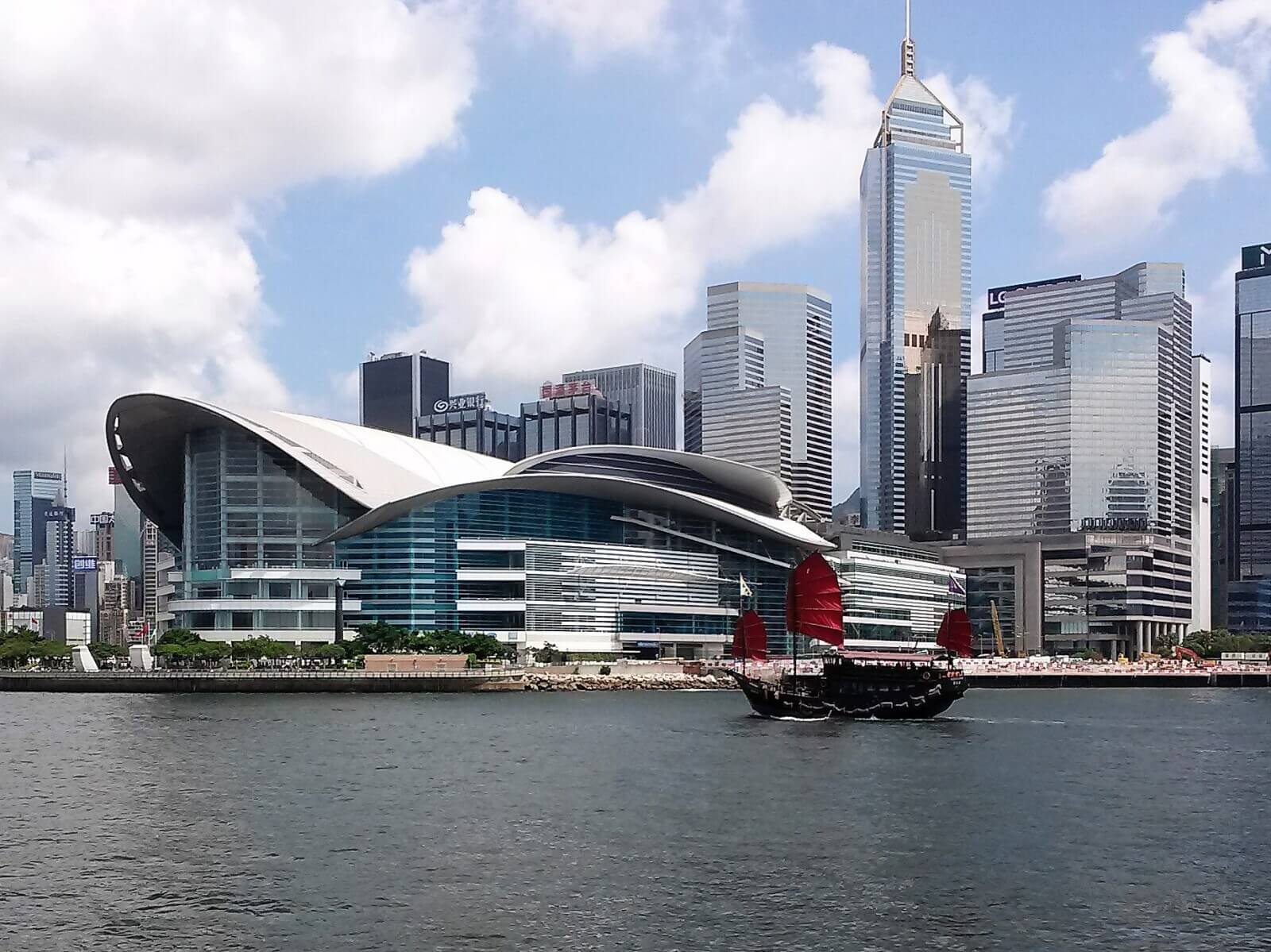Anyone entering Shanghai’s Xintiandi district in late September 2004 knew a major show was in town. The bars and restaurants were packed, luxury brand promotions were ubiquitous – and corporate credit cards were working overtime.
China’s first Formula One Grand Prix was a huge commercial success, drawing sponsors, VIPs and their guests from across the globe to spend, entertain and network. One executive from a high-profile retail company told me he had “an unlimited budget” for carousing clients during the three-day weekend.
This scenario will be replicated on November 28, 2008, when 90,000 people take to Singapore’s streets for F1’s first night race. This new addition to the F1 calendar illustrates Asia-Pacific’s growing importance for sporting franchises.

In 2008, five (Australia, Malaysia, Singapore, China and Japan) of the 18 F1 races will be held in the region – and the added economic benefits are already being calculated. It is estimated the race will generate US$66 million in incremental receipts, and Singapore’s Trade and Industry Ministry has announced a rate levy of 30 percent for 11 hotels located near to the track.
Major sporting and cultural events target local consumers as well as an international television audience. They also attract sponsors and brand partners eager to diversify their reach. As part of the experience, corporate hospitality is increasingly turning its attention east – primarily to China, but also to other thriving Asia-Pacific economies – as more trans-global professional events are held in the region.
While Formula One and European PGA golf are relatively established in Asia, the ATP and WTA tennis associations have announced new top-tier tournaments in Shanghai and Beijing from 2009. Europe’s best football teams – this year including Barcelona, Manchester United, Liverpool and Bayern Munich – now regularly tour Asia during the off-season. All these events create momentum for Asia’s emerging corporate hospitality sector.
Another driver is aggressive investment in event infrastructure, exemplified by the new Cotai Strip in Macau – which will feature several new hotels, plus Macau Studio City, a Cirque de Soleil theatre, Playboy mansion, and numerous casinos, theatres and entertainment venues. Leading the way is the 3,000-room Venetian Macau resort, which will bring NBA basketball and a Roger Federer versus Pete Sampras tennis match to its 15,000-seat Venetian Arena later this year. The Arena forms part of the Venetian’s declared aim to “reposition Macau as North Asia’s top destination for leisure and corporate travellers”.
Regional events also enable executives to combine sport and business. This summer, the 2007 Asian Cup football tournament was jointly held in Indonesia, Malaysia, Thailand and Vietnam. It offered a varied suite of corporate hospitality packages, ranging from a 10-person corporate box dining deal, priced US$2,000 for a first round match, to US$50,000 for a 16-person corporate hospitality box throughout the tournament, including the finals in Jakarta. Last December, the 15th Asian Games in Doha offered packages at its Sponsors Hospitality Village with the tag line “Five Stars: and we’re not talking about the athletes”. A ten-table lunch for the opening ceremony cost US$3,090.
Corporate entertaining can be an effective way of creating and cementing business relationships, and is a key tool for maximising a sponsorship investment. Face-to-face entertainment becomes increasingly important as the cost of acquiring new customers rises, and can help develop and maintain customer and employee relationships – and enhance brand value.
“There are some great examples of corporate hospitality, such as the Rugby 7s in Hong Kong, and various golf events in Hong Kong and Singapore, where corporations tie in the experience of being at a world-class event with a form of active participation, like golf clinics or opportunities to meet the star players,” says Marcus Luer CEO of Total Sports?Asia, a specialist sports marketing company with offices in Kuala Lumpur, Tokyo, Mumbai, Shanghai, Beijing and Dubai.
“Formula 1 also has a very strong corporate hospitality culture. Team sponsors normally tie in appearances of the drivers, pit walks and other perks to bring the client as close as possible to the product,” says Luer. “I’m sure we will see a new dimension of this for the Singapore Grand Prix next year. Singapore clearly has all the makings to be a second Monte Carlo in the F1 corporate hospitality world.”
On the downside, if corporate sponsorship and hospitality is not meticulously planned and executed, it can damage a corporate reputation, both with clients and rights holders.
Even so, some eventualities are beyond a company’s control. Sporting history is littered with sullied corporate reputations – just ask the plethora of companies seeking to disassociate themselves from the scandal-plagued Tour de France.
There are two common pitfalls of bad corporate hospitality, says Kim Skildum-Reid, a Tempe, New South Wales-based sponsorship expert, author, and the creative brain behind industry site www.powersponsorship.com. These are: not differentiating a hospitality offering from that of competitors; and assuming that one hospitality offering is going to work for all key clients.
“Differentiation can be about elevating the experience to the level of ‘money can’t buy’ – such as a chance to meet your hero, drive an IndyCar, get a guided tour inside a pyramid, or spend the day ‘in training’ with Olympians,” says Skildum-Reid. “It’s about getting away from beers in the skybox or tuxedos and Champagne in an arts centre reception area, and creating an experience that shows that people are understood and valued, and giving them something to remember.”
Related to this is the mistaken assumption that one kind of hospitality will work for all clients. “For instance, there are a lot of high-up decision-makers who have put off having kids. Now they’ve got big jobs and kids in primary school. They don’t want to frock up on a Wednesday night for the opera. They want to go home from their stressful job and spend time with their families. Hospitality opportunities that work for them might be about providing a Saturday morning behind-the-scenes tour at the opera with their kids.”
Getting corporate hospitality right needs careful planning. “There are learning curves in any organisation when managing a corporate hospitality programme,” says Louise Ardagh, CEO China for Frontiers Group. “Some of these issues might concern who to invite, and with whom to invite them; how to ensure VVIPs are exclusively invited – and not invited by others around town.”

Frontiers has worked on corporate programmes for events in China – including Cirque du Soleil’s Quidam, Beijing Music Festival, Phantom of the Opera, F1 Grand Prix, and this October’s Royal Salute Gold Cup polo event at Nine Dragons Hill resort near Ningbo. Hospitality buyers, Ardagh says, should focus clearly on the value a particular event will bring to the company’s overall objectives.
“You need to ask yourself many questions. Does this event provide the right experience for building the right relationships? How can you make the most of the evening with a potential key client?” Ardagh adds, “The difference between how you respond to these questions may mean the difference between taking a guest to a Formula One race, or to a classical music recital.”
Buyers must also consider hospitality from a client’s perspective. Standards of service, attention to detail, ease of management and clarity of instructions need to be ensured so that clients, and quite possibly the customers of those clients, have a memorable and easy experience, where all of their needs are met and where the objective of enhanced business relationships is satisfied”.
And don’t be afraid to experiment. “Create family-oriented experiences, like Dad’s Day at a football match, where your best customers can bring their kids to the skybox, meet some legends, get team jerseys with their names on them, and generally have a family day. It works well,” says Skildum-Reid. “Even better is to get the sales guys to bring their kids, too. This shows that you understand what’s important to them.”
As demand for corporate hospitality rises in Asia, service improvements are also required. “In general, corporate hospitality is only effectively used in a few Asian markets, such as Hong Kong, Singapore, Japan and Korea,” says Luer of Total Sports Asia. “In many other Asian countries, I see a lack of appreciation by the ‘customer’. For example, companies have tried to lavish hospitality at golf or yachting events in Malaysia and no-one showed up.” There clearly is either a lack of culture on the customer end, or the corporate world has not communicated well with their target audience on the benefits of this experience, Luer adds. “I think people would rather go and play the sport instead of watching it from a corporate marquee.”
The importance of effectively communicating the benefits cannot be overstated, agrees Ardagh of Frontiers Group. High-end hospitality should be valued in terms of the level of people and the level of exclusivity you are catering to.?“When a company sponsors an event, they are given rights which truly should be ‘money can’t buy’ opportunities. For example, concert and entertainment sponsorships can provide exclusive opportunities for sponsors to?perhaps tour backstage, meet the artist or be hosted in an exclusive experience,” Ardagh says. “When hospitality is used well, those invited to participate in the experience should be those who will value or feel the importance of an invitation like this.”
Beijing Olympics 2008
Less than one year away, the 2008 Beijing Olympics is slated to be the biggest corporate hospitality showpiece in history. Michael Payne, former commercial director of the International Olympic Committee, explains:“The Beijing Olympics will have an impact far beyond marketing. There has never been a sporting event that has made a bigger impact on the host country than the Beijing Games.”
Those words have hospitality companies salivating – and next August corporate guests in Beijing will find a completely rebuilt city to entertain them. Beijing has spent around US$36 billion, according to a Cushman & Wakefield report, to lay on the biggest Games ever. As global companies seek access to China’s vast television viewing population, the Beijing Games will have 55 official sponsors and suppliers, compared to 38 for the 2004 Athens Games – and each one will be exploiting their investments to the fullest, with significant corporate hospitality and consumer awareness programmes.
“If a sponsorship is leveraged effectively, your ‘money-can’t-buy’ tickets to the Games and the hospitality can be incredibly powerful,” says Louise Ardagh, CEO China of Frontiers.?“This is even more so when the experience of being at China’s first ever Olympic Games is the outcome of being invited.”
A lot of sponsors are “being incredibly strategic” about the global and local partners that they can host in Beijing, Ardagh adds. “Traditionally, as a sponsor, you are inviting many people in ‘waves’ of four days for the duration of the Games, as well as showcasing all of your amazing achievements as a sponsor in specially created pavilions.”
The payback of good corporate hospitality can be huge; General Electric – which has unveiled China’s first rainwater recycling system at Beijing’s Bird’s Nest National Stadium – hopes to generate at least US$500 million in sales from around 335 projects associated with its official 2008 Olympic Games partner status.
UK-based Sportsworld is the official corporate hospitality partner for 18 National Olympic Committees. Its corporate hospitality programmes are fully hosted four- or five-night tours, including A-category tickets for up to six Olympic events, airport transfers, meals, sightseeing trips in Beijing and to the Great Wall, and opening and closing ceremony parties. The programmes start from US$5,493 per person, but irrespective of the price, Sportsworld says it has received “an unprecedented level of interest from companies who are keen to show their presence in China, or those looking to provide access to the world’s greatest sporting event for their top employees”.


